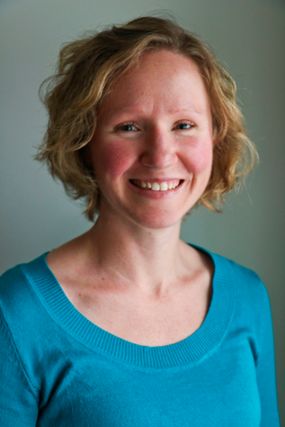MSU's Sarah Evans named to prestigious Earth Leadership Program cohort

Michigan State University microbial ecologist Sarah Evans is one of 22 leading sustainability scientists named to the 2022 North American cohort of the Earth Leadership Program (ELP).
The ELP provides outstanding academic researchers with the skills, approaches, and theoretical frameworks for catalyzing change to address the world’s most pressing sustainability challenges, emphasizing new forms of individual and collective leadership. The program enables scientists to work collaboratively with diverse stakeholders and become agents of change within and beyond their universities.
Sharon Collinge, a 2004 Leopold Leadership Fellow and full professor in the Environmental Studies Program at the University of Colorado Boulder, leads the ELP.
“I’m really excited to meet and learn from such a diverse group of people with amazing expertise in so many critical aspects of environmental change research,” Collinge said. “These fellows are leaders at the forefront of research and innovation to create a more positive trajectory for our planet’s future. One of their biggest challenges is to find a balance between that imperative to act quickly, and the need for creating deep and authentic partnerships in society to truly accelerate systemic and durable change.”
Evans is both honored and excited to have the opportunity to participate in the program.
“I hope to learn how to develop networks broader than the university and to establish partnerships and projects with diverse groups,” said Evans, an associate professor who holds appointments in the MSU Departments of Integrative Biology and Microbiology and Molecular Genetics in the College of Natural Science, and is an MSU W.K. Kellogg Biological Station (KBS) faculty member. “By working with partners, I can do the science that’s needed to create win-win solutions for people and conservation.”
Evans is interested in how microbial communities respond to their environment, and how this response affects ecosystems. She is particularly interested in responses to predicted changes in rainfall patterns (e.g., more drought and flood), and how microorganisms will influence nitrogen cycling, greenhouse gas production, and agricultural sustainability under these new climate regimes.
Her lab uses a combination of DNA-based methods, culturing, biogeochemical analyses, modeling and field manipulations as they ask fundamental questions about how microorganisms assemble into communities, respond and influence host organisms (e.g., rhizosphere or gut microbiome), and adapt to a new environment.
“We are absolutely thrilled that Sarah has received the impressive distinction of being named as a fellow of ELP, which has a long history of identifying and nurturing the top global leaders in sustainability science,” said Fredric Janzen, KBS director. “This recognition of Sarah’s accomplishments and future scholarly potential is spot-on."
To learn more about the 2022 North American cohort, why they do the research they do, and what they are hoping to learn, visit: earthleadership.org.
Banner image: Aerial view of agricultural test fields at the W.K. Kellogg Biological Station (KBS). KBS is Michigan State University’s largest off-campus education complex and one of North America’s premier inland field stations. It is home to one of the National Science Foundation’s Long-Term Ecological Research (LTER) Program sites and is committed to science and ecology education, conservation of natural resources and sustainable agriculture research and demonstration. KBS is administered through the College of Natural Science and the College of Agriculture and Natural Resources. Credit: KBS LTER